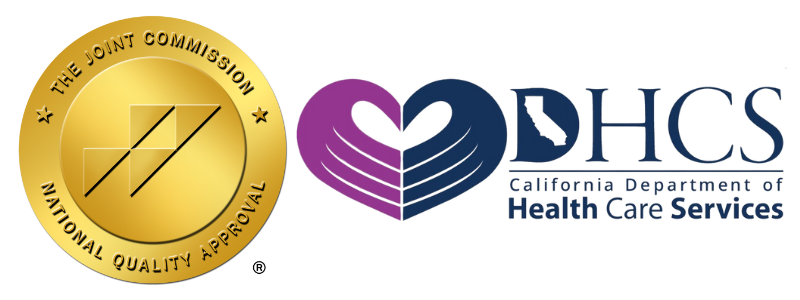Ecstasy Addiction Treatment

Breaking Free from Ecstasy Dependency & Reclaiming Your Mental and Physical Health
Ecstasy (MDMA), commonly known as Molly, E, or X, is a synthetic psychoactive drug that produces intense euphoria, heightened sensory perception, and emotional connectivity. While many use ecstasy recreationally at parties, concerts, and clubs, frequent use can lead to dangerous health effects, addiction, and long-term brain damage.
At Mission Recovery Home, we provide comprehensive ecstasy addiction treatment that helps individuals safely detox, address the neurological damage caused by MDMA, and regain emotional balance. If ecstasy use is interfering with your well-being, our expert team is here to help you reclaim your life.
What Is Ecstasy Addiction?
- Pressed tablets or pills (colorful, often imprinted with logos)
- Powdered form ("Molly")
- Capsules containing MDMA crystals
Ecstasy Addiction by the Numbers (National Institute on Drug Abuse - NIDA)
- Over 2.6 million people used ecstasy in the past year.
- Ecstasy-related emergency room visits increased by 120% in the last decade.
- Long-term MDMA use is linked to irreversible serotonin damage, affecting mood and emotional stability.

How We Treat Ecstasy Addiction at Mission Recovery Home
Step 1: Medically Supervised Detox
24/7 medical monitoring to manage withdrawal symptoms.
Nutritional therapy and hydration support to restore body balance.
Medication-assisted treatment (if necessary) to manage depression and anxiety.
Step 2: Residential Inpatient Treatment
Cognitive Behavioral Therapy (CBT) & Dialectical Behavioral Therapy (DBT) to retrain the brain and improve emotional regulation.
Brain wellness programs to restore neurotransmitter function and emotional balance.
Group therapy & peer support to provide encouragement and relapse prevention strategies.
Holistic healing including yoga, mindfulness, and stress-reduction techniques.
Step 3: Intensive Outpatient Treatment (IOP) & Long-Term Recovery
Flexible outpatient care to transition back into daily life.
Ongoing therapy to manage cravings and emotional triggers.
Life skills and career support to help individuals rebuild a fulfilling, drug-free life.
How Ecstasy Affects the Brain & Body
Short-Term Effects of Ecstasy Use
- Intense euphoria and emotional closeness
- Distorted time perception and increased energy
- Dehydration and overheating (hyperthermia)
- Blurred vision, muscle tension, and jaw clenching
- Anxiety, confusion, and paranoia
Long-Term Effects of Ecstasy Addiction
- Severe depression and anxiety due to serotonin depletion
- Hallucinations and paranoia
- Memory loss and impaired cognitive function
- Increased risk of heart attack, kidney failure, and heat stroke
- Persistent insomnia and emotional instability

The Importance of Seeking Help Now
- Severe depression and permanent brain chemistry imbalances.
- Memory loss, cognitive decline, and difficulty concentrating.
- Increased risk of stroke, heart failure, and fatal overdose.

Signs & Symptoms of Ecstasy Addiction
Behavioral Signs of Ecstasy Addiction
Frequent or escalating use of ecstasy despite negative effects
Emotional dependence on ecstasy for socializing or feeling "normal"
Financial struggles or risky behaviors to obtain the drug
Difficulty functioning at work or school due to mood swings and depression
Experiencing withdrawal symptoms (fatigue, irritability, depression) when not using
Physical & Psychological Symptoms
Severe mood swings and anxiety
Excessive sweating, chills, and muscle pain
Hallucinations or paranoia
Insomnia and difficulty sleeping
Memory loss and difficulty concentrating
What We Hope to Achieve for Every Client
- Freedom from Ecstasy Dependence – A structured recovery program that eliminates cravings and mood crashes.
- Cognitive & Emotional Healing – Therapy to heal from emotional distress and repair brain function.
- A Strong Support System – Encouraging healthy relationships and emotional stability.
- Long-Term Sobriety & Success – Equipping clients with coping strategies, mental health resources, and relapse prevention techniques.

The Hidden Dangers of Ecstasy Abuse
- Overheating (Hyperthermia): MDMA prevents the body from sensing dangerously high temperatures, leading to heatstroke, dehydration, and organ failure.
- Water Intoxication (Hyponatremia): Some users drink excessive amounts of water, leading to brain swelling and fatal complications.
- Severe Mood Crashes & Suicide Risk: MDMA depletes serotonin, causing severe depression, suicidal thoughts, and emotional instability for days or weeks after use.
- Cardiovascular Risks: Increased heart rate, blood pressure, and risk of stroke or heart attack.
- Deadly Drug Combinations: Many ecstasy pills are laced with meth, fentanyl, or other dangerous substances, increasing the risk of overdose.

Why Choose Mission Recovery Home?
Expert Medical & Psychological Support
Specialized care for depression, anxiety, and MDMA-induced neurological damage.
Evidence-Based Therapy
CBT, DBT, holistic treatments, and neurotherapy.
Personalized Treatment Plans
Tailored to each individual’s unique mental and emotional needs.
Ongoing Aftercare & Relapse Prevention
Long-term strategies for maintaining emotional stability and sobriety.


